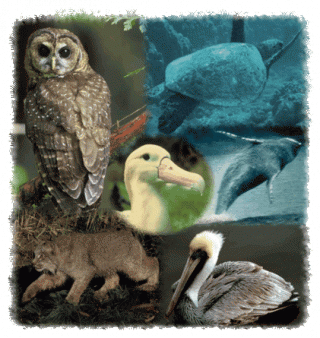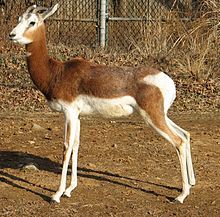
Are we, humans in the 21st century, experiencing a mass extinction of animals, plants, and insects? Scientists estimate that the current rate of extinction is about 1000 times the natural rate of .0001% per year. Given their estimate of 14 million species on earth, we are losing about 14,000 species a year (Miller & Spoolman, 2009). Holes are appearing in the fabric of the web of life faster than we can comprehend. Zoos are facing the choice of which species to try to save, leaving others such as the Mhorr gazelle to face extinction.

In traditional Native American cultures, “all my relations” include all forms of life: animals, plants, and insects, as well as all other humans. Losing one of these species to extinction is akin to losing a member of one’s family. From the perspective of deep ecology, all parts of the web of life are part of one’s self. Thus losing a species to extinction is akin to losing part of oneself. Losing a member of one’s family or losing a part of oneself is certainly a source of grief. Unacknowledged or repressed, this grief and its accompanying feelings such as anger can manifest as a stress response in the body, resulting in chronic disease conditions as described by Gabor Mate.
According to Mate (2003), many people who develop cancer, multiple sclerosis, and other chronic diseases have similar personality traits: They deny feelings of anger, grief, and other negative emotions. How many of us acknowledge our grief or anger for the loss of a species to extinction? Even if we are not consciously aware of these feelings, our psyches feel the pain of this loss. We are all interconnected.
Unless conservation efforts increase dramatically, the rate of extinction may soon approach 1%, resulting in the loss of one fourth of our species by 2050 and half by 2100. These species will not come back, at least not for millions of years (Miller & Spoolman, 2009). Ecologists were hoping that nations would address this issue at the United Nations Conference on Sustainable Development in Rio de Janiero, which was held June 20-22, 2012. However, although considerable funding was pledged for a variety of sustainability initiatives, no binding agreements were signed.
The proximate causes of extinction are habitat loss, pollution, and too much hunting and fishing. The underlying causes are human population growth, poverty, and government policies. All of these causes are within our ability to control, and scientists believe that we still have time to reverse our current course of destruction. However, first we must directly face the problem; this would address an even deeper root cause of our collective path of destruction: As long as these destructive patterns remain unconscious, we blindly act them out. Jung (2008) pointed out the importance of the psyche to the future of our world: "Nowadays particularly, the world hangs by a thin thread, and that thread is the psyche of man" (p. 164).

Can we focus our conscious awareness on what’s happening to all our relations, feel the grief and anger of losing members of our family, and begin healing ourselves and our planet? Our future depends upon it.
References
Jung, C. G. (2008). We know nothing of man. In M. Sabini (Ed.). The earth has a soul: C. G. Jung on nature, technology & modern life (pp. 163-192). Berkeley, CA: North Atlantic Books.
Mate, G. (2003). When the body says no: Exploring the stress-disease connection. Hoboken, NJ: Wiley.
Miller, G.T., & Spoolman, S. E. (2009). Living in the environment: Concepts, connections, and solutions (16th ed.). Belmont, CA: Brooks/Cole.


